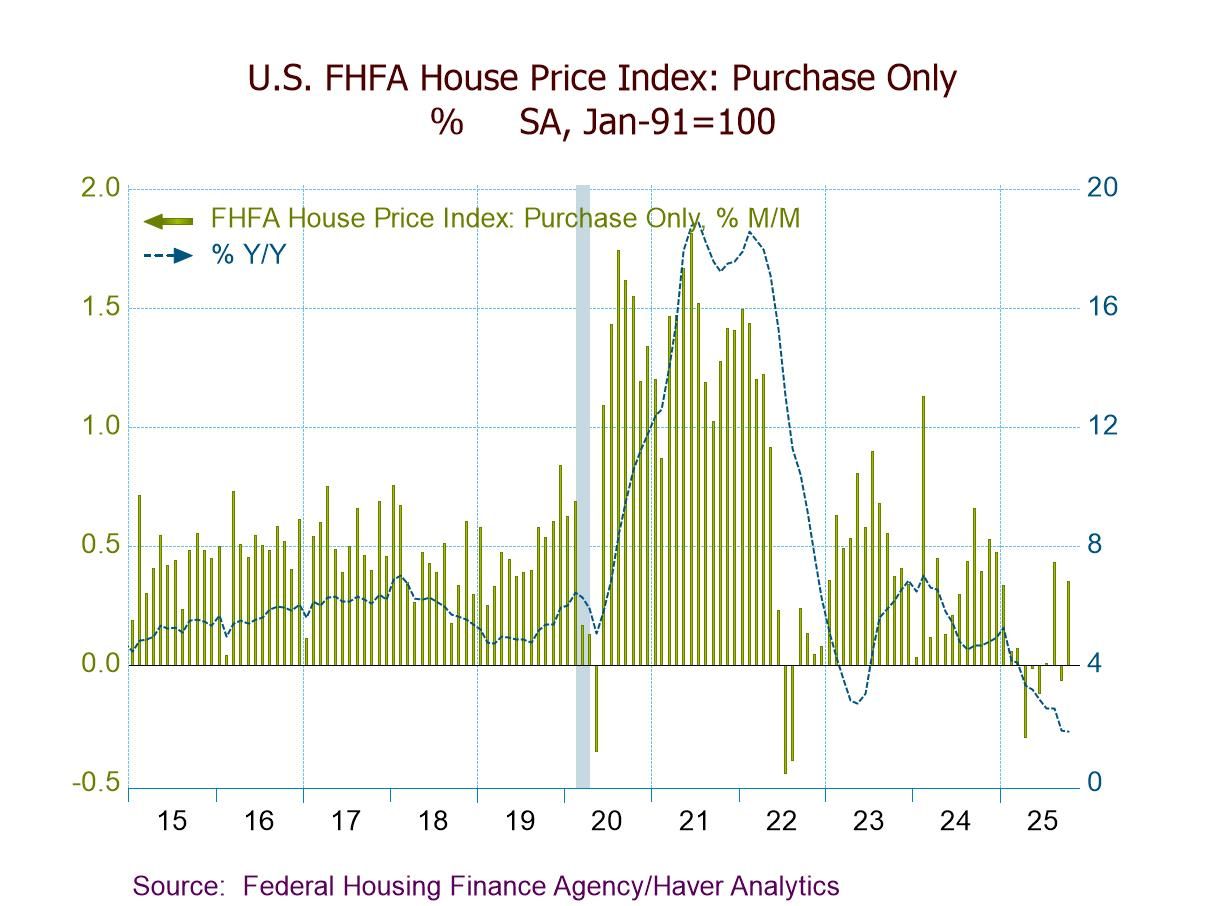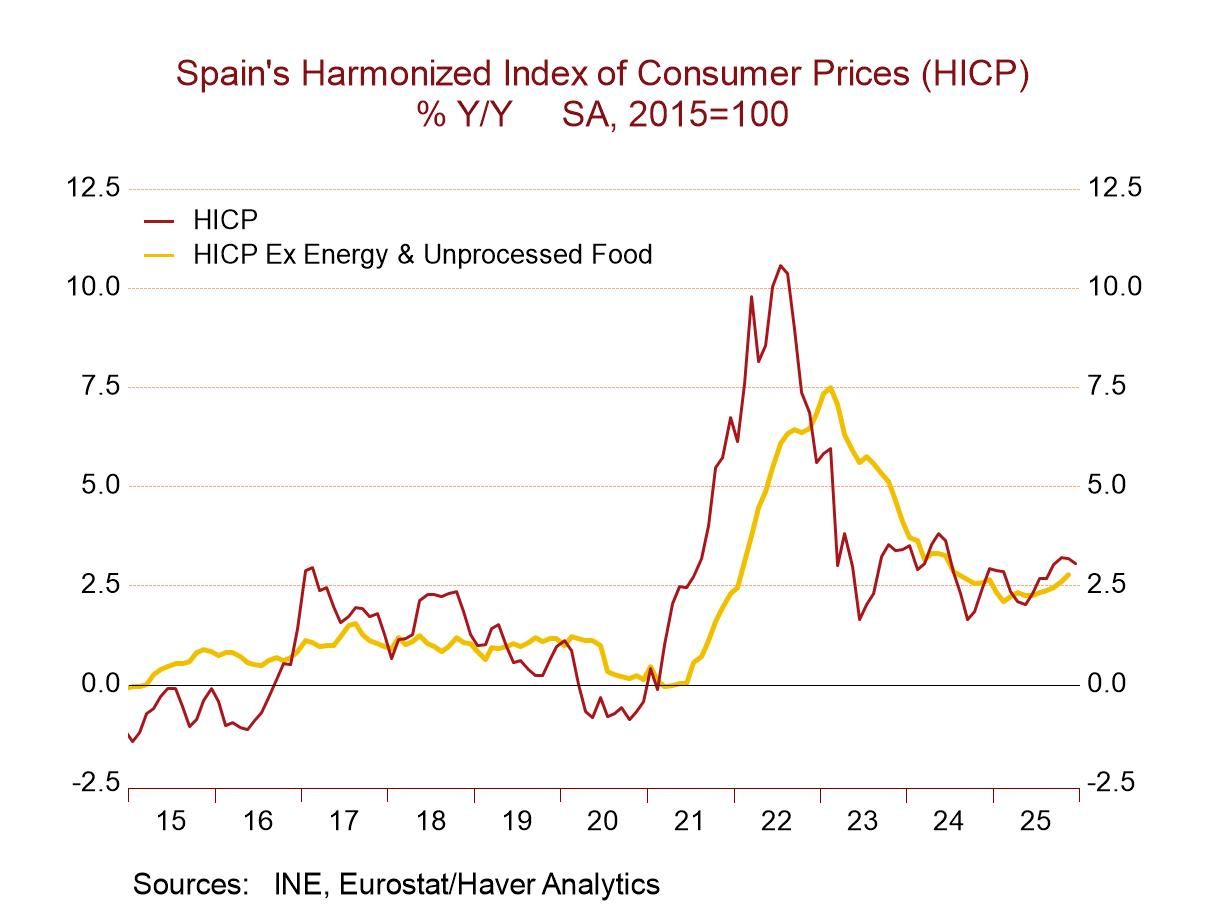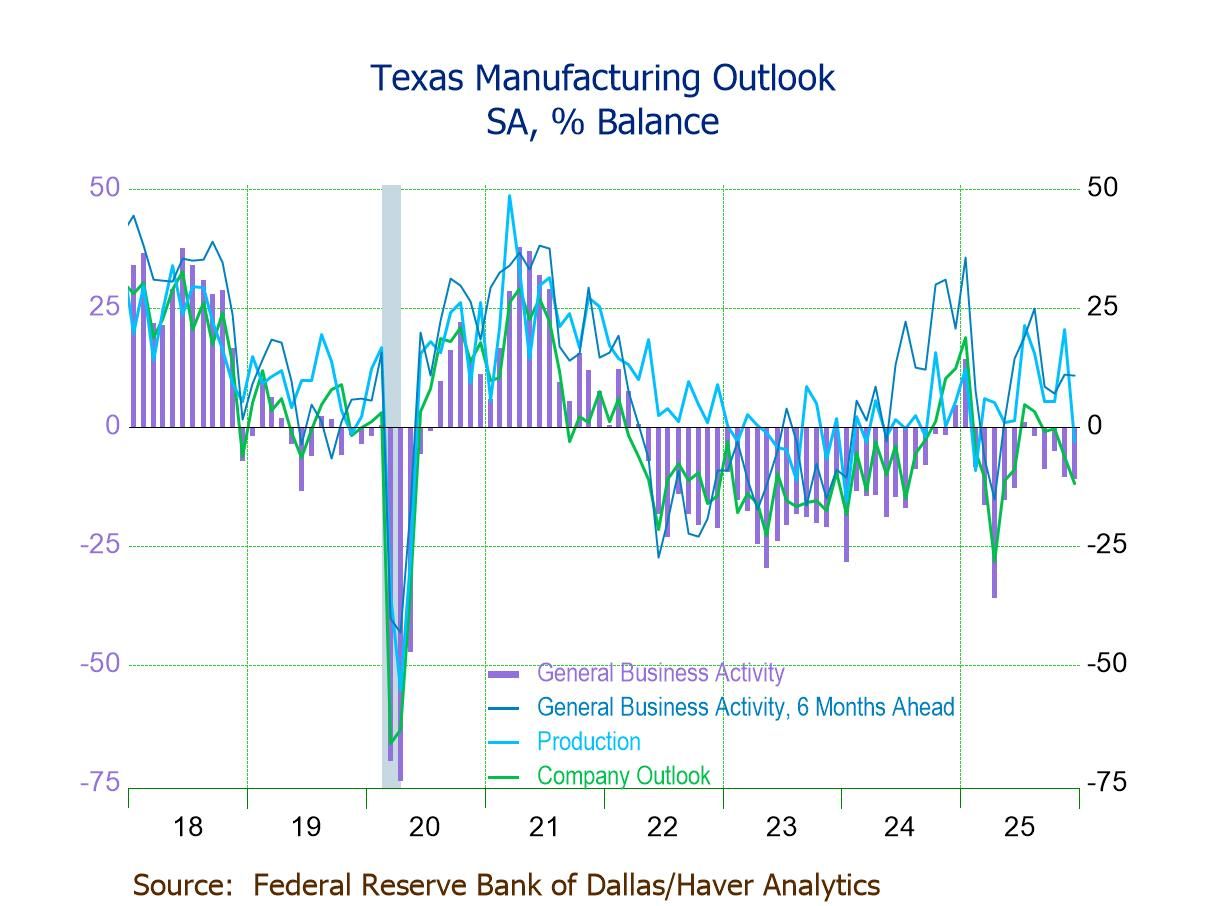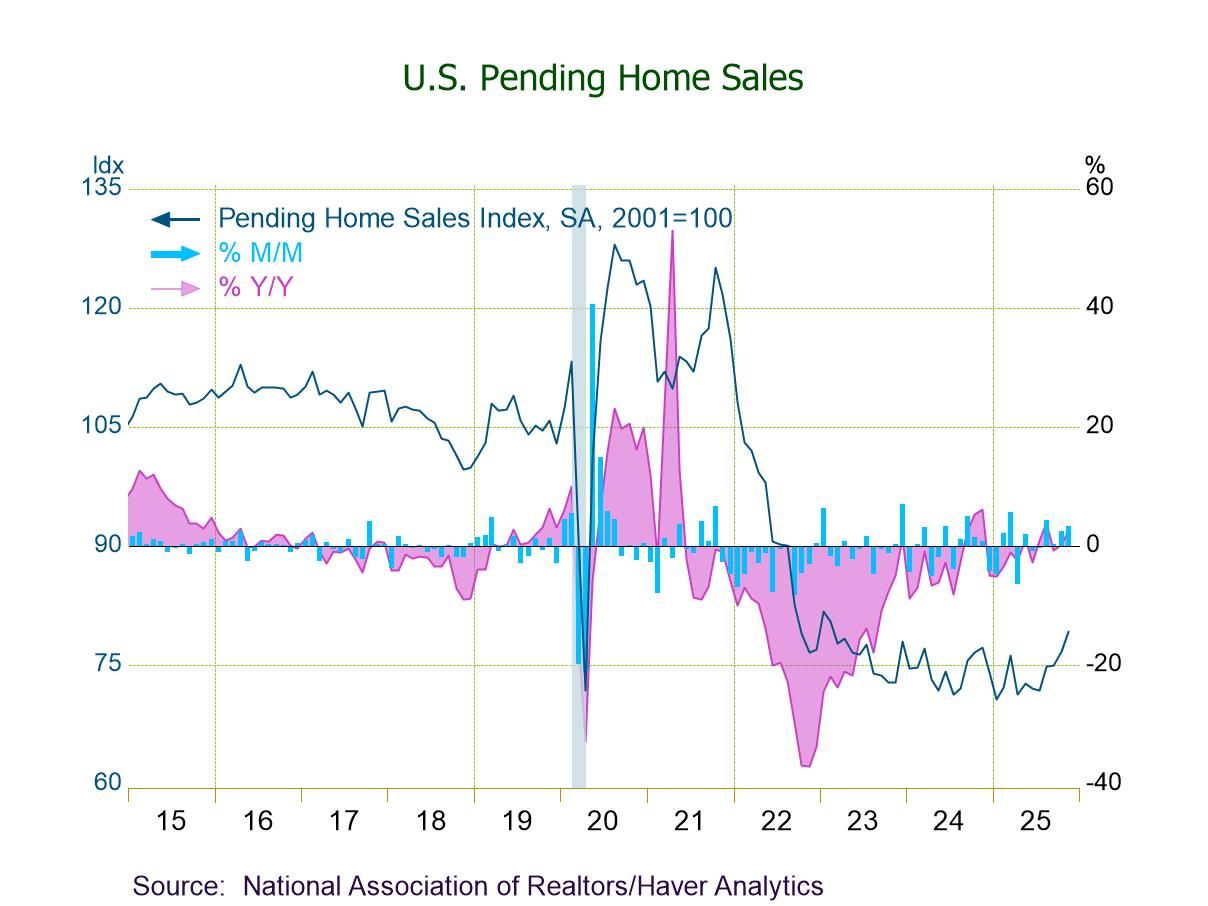 Global| Apr 30 2010
Global| Apr 30 2010U.S. GDP Growth Moderates As Lift From Inventories Fades
by:Tom Moeller
|in:Economy in Brief
Summary
A slower rate of inventory replenishment was warranted because products weren't leaving the shelves quickly. As a result, real GDP growth eased last quarter to 3.2% after the 5.6% jump during 4Q '09. The latest roughly matched [...]
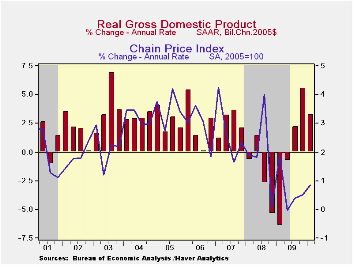
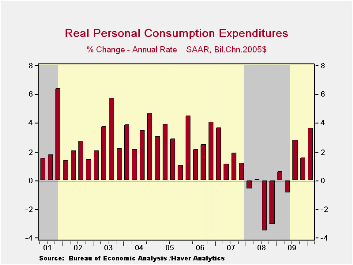
A slower rate of inventory replenishment was warranted because products weren't leaving the shelves quickly. As a result, real GDP growth eased last quarter to 3.2% after the 5.6% jump during 4Q '09. The latest roughly matched Consensus expectations for 3.4% growth. Regardless, it was the third consecutive quarter of positive growth after the recession when GDP fell 3.7% peak-to-trough, a postwar record.
The addition to growth from inventories fell to 1.6 percentage points which was roughly half the 4Q add. Inventories also helped the economy initially emerge from recession with a moderate 0.7 contribution to 3Q '09 GDP growth. Prior to these additions, inventory liquidation had subtracted from GDP growth since 2005, a length of time unprecedented in postwar history.
Growth in domestic final demand picked up last quarter to a still-modest 2.2% after 1.4% 4Q growth. These rates compare to up to 9.0% in the early stages of earlier economic recoveries. Last quarter's improvement was due to consumer spending growth of 3.6% after 1.6% 4Q growth. Motor vehicle purchases fell for the second straight quarter (+1.4% y/y) but spending on other consumer durables and clothing (2.1% y/y) jumped. Spending on services also improved (1.1% y/y). Fixed business investment growth remained moderate at 4.0% compared to double-digit growth early in past recoveries. Equipment spending surged 13.4% (6.9% y/y) offset by a 14.0% decline (-17.0% y/y) in structures. With an on again-off again pattern, residential investment fell 10.9% after just two quarters of positive growth. Finally, government spending fell at a 1.8% rate as budget cutbacks caused state & local spending to fall (-0.7% y/y) for the fifth time in the last six quarters.
Deterioration in the foreign trade deficit subtracted 0.6 percentage points from last quarter's gain in GDP. It was the second negative effect in the last three quarters. Growth in exports of 5.8% (10.1% y/y) was much lower than during prior two quarters. In addition import growth of 8.9% (6.9% y/y) was reduced from double-digit rates in 3Q & 4Q '09.
Price inflation remained low at 0.9% as measured by the chained GDP price index. The y/y gain of just 0.4% was the lowest since the early-1950s. The personal consumption chain price index rose a reduced 1.5% but year-to-year prices increased an improved 2.0%, the quickest since 2008. The price index for fixed business investment fell 1.7% (-3.0% y/y), the fifth consecutive quarterly decline, but the residential investment price index rose for the second consecutive quarter (-1.0% y/y).
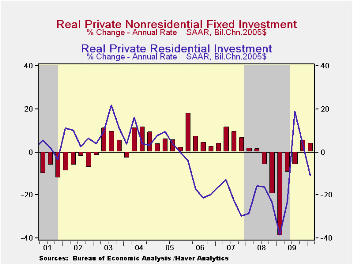
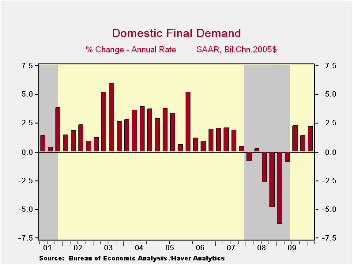
| Chained 2005$, % AR | 1Q '10 | 4Q '09 | 3Q '09 | 1Q Y/Y | 2009 | 2008 | 2007 |
|---|---|---|---|---|---|---|---|
| GDP | 3.2 | 5.6 | 2.2 | 2.5 | -2.4 | 0.4 | 2.1 |
| Inventory Effect | 1.6 | 3.8 | 0.7 | 1.1 | -0.7 | -0.4 | -0.4 |
| Final Sales | 1.6 | 1.7 | 1.5 | 1.4 | -1.7 | 0.8 | 2.5 |
| Foreign Trade Effect | -0.6 | 0.3 | -0.8 | 0.2 | 1.0 | -1.2 | 0.8 |
| Domestic Final Demand | 2.2 | 1.4 | 2.3 | 1.2 | -2.7 | -0.4 | 1.7 |
| Personal Consumption | 3.6 | 1.6 | 2.8 | 1.8 | -0.6 | -0.2 | 2.7 |
| Business Fixed Investment | 4.0 | 5.3 | -5.9 | -1.7 | -17.8 | 1.6 | 6.2 |
| Residential Investment | -10.9 | 3.7 | 18.9 | 4.2 | -20.5 | -22.9 | -18.5 |
| Government Spending | -1.8 | -1.3 | 2.7 | 2.5 | 1.8 | 3.1 | 1.7 |
| Chained GDP Price Index | 0.9 | 0.5 | 0.4 | 0.4 | 1.2 | 2.1 | 2.9 |
Tom Moeller
AuthorMore in Author Profile »Prior to joining Haver Analytics in 2000, Mr. Moeller worked as the Economist at Chancellor Capital Management from 1985 to 1999. There, he developed comprehensive economic forecasts and interpreted economic data for equity and fixed income portfolio managers. Also at Chancellor, Mr. Moeller worked as an equity analyst and was responsible for researching and rating companies in the economically sensitive automobile and housing industries for investment in Chancellor’s equity portfolio. Prior to joining Chancellor, Mr. Moeller was an Economist at Citibank from 1979 to 1984. He also analyzed pricing behavior in the metals industry for the Council on Wage and Price Stability in Washington, D.C. In 1999, Mr. Moeller received the award for most accurate forecast from the Forecasters' Club of New York. From 1990 to 1992 he was President of the New York Association for Business Economists. Mr. Moeller earned an M.B.A. in Finance from Fordham University, where he graduated in 1987. He holds a Bachelor of Arts in Economics from George Washington University.



